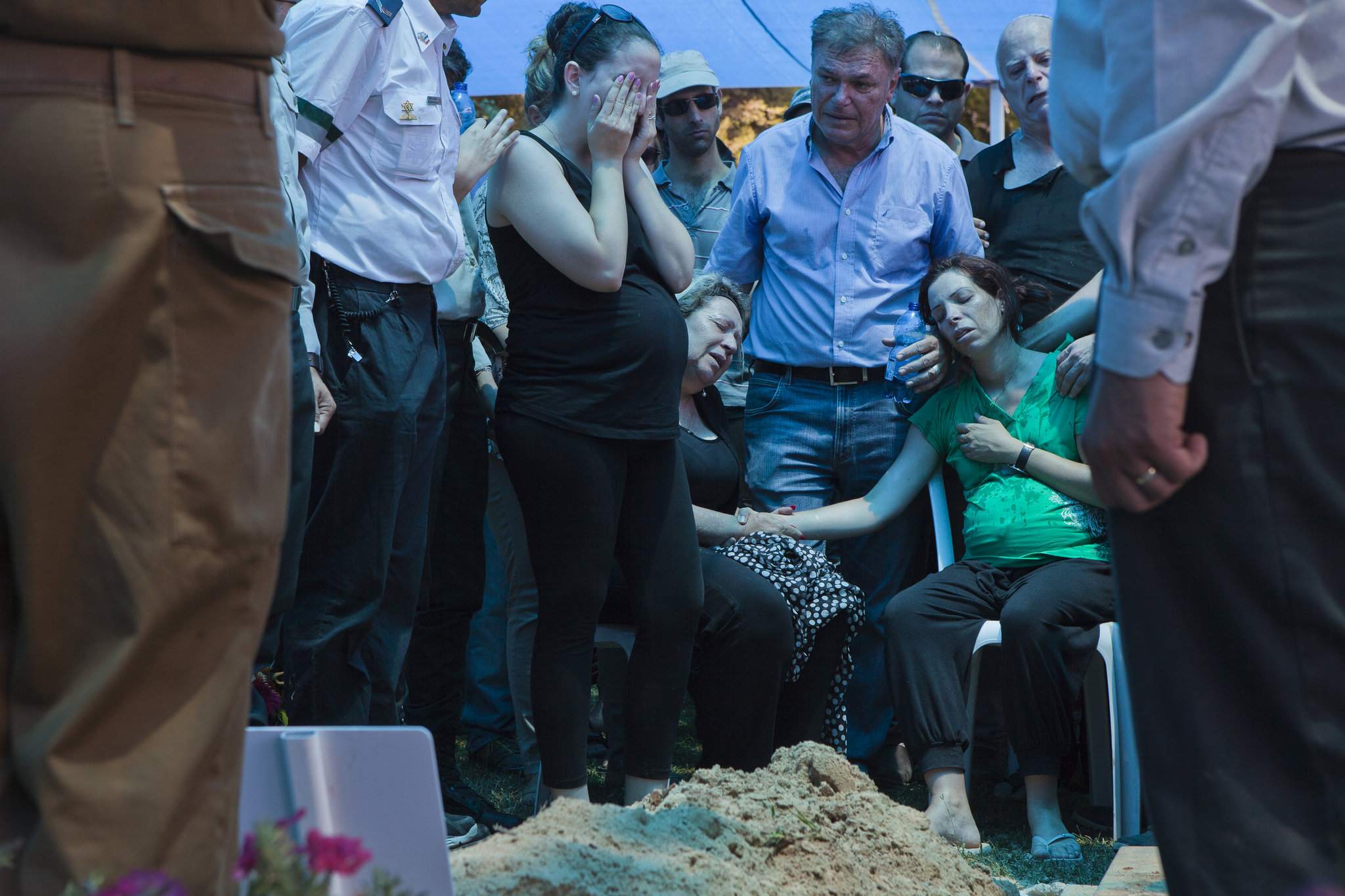Ex-Israeli Soldiers' Plea: Free Gaza Prisoners

Table of Contents
The Ex-Soldiers' Arguments for Prisoner Release
The ex-soldiers base their plea on several compelling arguments. Their call to Free Gaza Prisoners isn't simply a matter of compassion; it's a strategic move rooted in a belief that prisoner release can be a significant step toward lasting peace. Their reasons are multifaceted:
-
Humanitarian Concerns Regarding Prison Conditions: The ex-soldiers highlight the often deplorable conditions in Gaza prisons, citing concerns about inadequate healthcare, sanitation, and overall treatment of prisoners. They argue that these conditions violate international human rights standards and represent a moral imperative for action. Reports from human rights organizations (links to relevant reports would be inserted here) corroborate many of these claims, painting a grim picture of the realities faced by incarcerated Palestinians.
-
Peace Prospects Through Goodwill Gestures: The ex-soldiers believe that releasing prisoners could be a powerful goodwill gesture, fostering trust and paving the way for meaningful peace negotiations. They suggest that such an act could demonstrate a commitment to reconciliation and create a more positive atmosphere for dialogue. This argument is based on the idea that addressing immediate humanitarian concerns can unlock broader political progress.
-
Specific Prisoner Cases Highlighting Injustice: While individual details remain confidential to protect the prisoners, anecdotal evidence shared by the ex-soldiers points to cases where lengthy sentences may not reflect the severity of the alleged crimes. They advocate for a thorough review of individual cases, urging a more just and equitable approach to sentencing. These specific narratives aim to humanize the issue and encourage empathy.
-
International Human Rights Law Violations: The ex-soldiers' plea cites potential violations of international human rights laws regarding fair trial procedures, appropriate detention conditions, and the treatment of prisoners of war. They draw attention to international conventions and legal precedents that they believe have been overlooked in the current situation. This strengthens their call for action based on universally recognized legal principles.
The Political Landscape and Potential Obstacles
The political landscape surrounding this issue is incredibly complex. The call to Free Gaza Prisoners faces significant headwinds from several quarters:
-
Israeli Government Response: The Israeli government's official response has been cautious and measured (insert official statements or news reports here). Security concerns are consistently raised, with anxieties about the potential release of individuals deemed security threats. This underscores the delicate balancing act required in finding a solution.
-
Palestinian Authority and Hamas Stances: The Palestinian Authority (PA) and Hamas hold differing perspectives on the prisoner release. While the PA may support the general idea of freeing prisoners as a peace-building measure, Hamas's position is likely to be more conditional and influenced by its specific political goals (insert information on the stances of both PA and Hamas here).
-
Security Concerns and Prisoner Exchange Mechanisms: Israel's primary concern revolves around security. The government fears the release of prisoners could pose a threat to national security. This has led to calls for carefully managed prisoner exchanges, with mechanisms to mitigate potential risks. Finding a framework that balances security concerns with humanitarian considerations is a key challenge.
-
Obstacles to Implementation and Political Will: Even with a willingness from all parties, implementing a prisoner release faces numerous hurdles. Complex logistical challenges and the need for international monitoring are only some of the obstacles that could hinder progress. The lack of a genuine commitment to peace from all involved parties remains a primary obstacle.
Public Opinion and International Response
The ex-soldiers' plea has sparked considerable debate:
-
Media Coverage and Public Sentiment: Major news outlets have extensively covered the story, generating significant public discussion (insert links to news articles here). Public opinion is divided, with varying levels of support depending on political affiliation and perspective. Polls indicating public sentiment (if available) should be included here.
-
Human Rights Organizations' Statements: Human rights organizations have responded with a mix of cautious optimism and calls for greater transparency and accountability. Some have strongly endorsed the ex-soldiers' call, while others have expressed concerns about potential security ramifications (insert quotes and links from relevant human rights organizations here).
-
International Pressure and Diplomatic Efforts: International pressure on the Israeli government to address the issue has been measured but consistent. Diplomatic efforts are underway to facilitate dialogue and find common ground (insert information on international involvement and diplomatic efforts here).
Conclusion
The unprecedented plea by ex-Israeli soldiers to Free Gaza Prisoners represents a significant turning point in the ongoing conflict. Their arguments, rooted in humanitarian concerns and a belief in the potential for peace-building, challenge entrenched positions and highlight the urgency of addressing the plight of Gaza prisoners. While the political landscape remains complex and fraught with obstacles, their call underscores the need for dialogue, compromise, and a renewed commitment to finding a just and lasting resolution. The international community, along with individual citizens, must engage with this issue thoughtfully and constructively.
Call to Action: Learn more about this vital issue. Contact your representatives to voice your support for the release of Gaza prisoners and urge them to prioritize a peaceful resolution to this conflict. Donate to organizations working towards peace in the region. Join the movement to Free Gaza Prisoners and help us build a path towards lasting peace.

Featured Posts
-
 54 Eton Kai Lamperi I Naomi Kampel Stis Maldives Me Tin Oikogeneia Tis
May 26, 2025
54 Eton Kai Lamperi I Naomi Kampel Stis Maldives Me Tin Oikogeneia Tis
May 26, 2025 -
 Pogacars Dominant Tour Of Flanders Victory A Solo Masterclass
May 26, 2025
Pogacars Dominant Tour Of Flanders Victory A Solo Masterclass
May 26, 2025 -
 Formula 1 Success And Decline After Age 40
May 26, 2025
Formula 1 Success And Decline After Age 40
May 26, 2025 -
 F1 Drivers Press Conference Your Guide To The Post Race Insights
May 26, 2025
F1 Drivers Press Conference Your Guide To The Post Race Insights
May 26, 2025 -
 China Us Trade Surge Exporters Rush To Meet Trade Deal Deadline
May 26, 2025
China Us Trade Surge Exporters Rush To Meet Trade Deal Deadline
May 26, 2025
